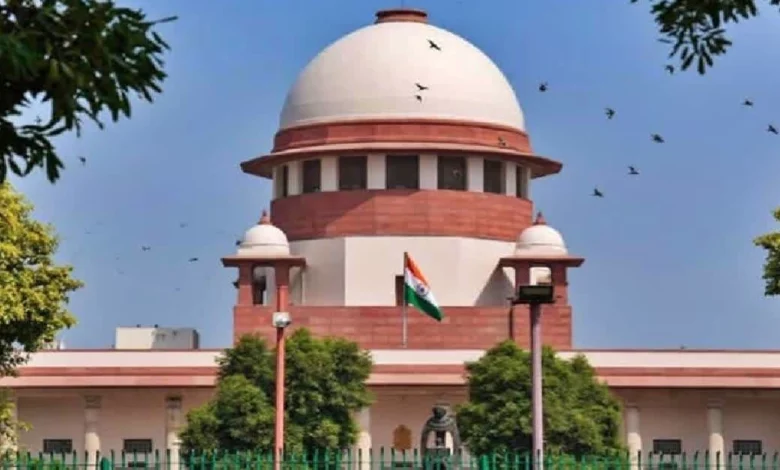Daily Current Affairs for UPSC
Privileges and Immunities to the MPs and MLAs
Syllabus- Polity and Governance [GS Paper-2]

Context- The 5-judge constitutional judgment of 1998 (in the case of P V Narasimha Rao) was upheld by the Supreme Court to a 7-judge bench as it had a profound impact on the morale of the Indian state.
Privileges and Immunities to the MPs and MLAs
- Meaning: Privileges are the special rights, immunities and exemptions enjoyed by the members of two houses of the Parliament and the State Legislatures and their committees and their members.
- In the Constitution, these privileges are extended to those people who have the right to speak and the right to participate in the work of the Parliament or its commissions.
- For example, the Attorney General of India.
- Constitutional Provisions: Articles 105 and 194 of the Constitution of India provide privileges or benefits to the MPs (Article 105) and to the MLAs (Article 194) of every State.
- These powers, privileges and freedoms should be defined by law from time to time.
- These privileges are considered as special provisions and have an overriding effect in conflict.
- It must be clarified here that these privileges do not extend to the President (or Governor) who is also an integral part of the Parliament (or state legislature).
Privileges mentioned in the Constitution:
- It gives the MPs freedom of speech [Article 115 (1)].
- It provides that no MP will be liable to any proceedings before any Court for anything said or any vote given by him/her in the Parliament or any committee thereof [Article 105(2)].
- Also, no person will be held liable for any publication of any report, paper, votes or proceedings if the publication is made by the parliament or any authority under it.
- The same provisions are contained in Article 194, which refers to MLAs of a state instead of Members of Parliament.
Purpose:
- These privileges and liberties –
- Issued to enable MPs/MLAs to perform their duties or function properly without hindrance – essential to the democratic functioning of legislative bodies.
- Without these privileges
- Houses also cannot maintain their authority, dignity and honor.
- Nor can they protect their members against all obstacles in the performance of their parliamentary duties.
Difference between Articles 19 and Article 105:
- Freedom of speech is mentioned both in the articles of the constitution, Article 19 (1) a) and Article 105.
- Article 105 applies to members of parliament, who are not subject to any reasonable restrictions.
- But Article 19(1)(a) applies to citizens and is subject to reasonable limitations.
- This means that Article 105 is an absolute privilege for parliamentarians, but that privilege can be exercised within the premises of parliament and not outside parliament.
Some Judicial Interpretations Regarding these Privileges and Immunities:
- The P.V. Narsimha Rao Case (1998):
-
-
- In this case, the question arose whether a Member of Parliament has immunity in criminal proceedings against him based on Article 105(2).
- The Supreme Court (by a majority of 3-2) confirmed (under the Prevention of Corruption Act, 1988) parliamentarians who accepted bribes and voted in parliament to save the then Congress government.
- Recently, the SC transferred this controversial decision – whether MPs who take bribes should be entitled to immunity under Article 105 (2), whether they vote or not – to a larger (7-judge) bench.
-
- Keshava Singh Case (1965):
-
- The court explained that the House is considered to be the only and exclusive judge in matters of privilege under the Constitution of India.
- But if no such privilege is mentioned in the constitution of India, it has to be decided by the court.
Regarding SC Referring P V Narasimha Rao Case to a Larger Bench:
- The P V Narasimha Rao case refers to the 1993 JMM bribery case in which Shibu Soren and some MPs from his party were accused of taking bribes to vote against the no-confidence motion against the then P V Narasimha Rao government.
- The SC ended the case against the JMM MPs citing Article 105(2) immunity.
- Recently, the issue came up in another case related to bribery charges against JMM MLA Sita Soren, who was accused of taking a bribe to vote for an independent candidate in the 2012 Rajya Sabha elections.
- She moved the Jharkhand HC to quash the charge sheet and criminal proceedings against him under Article 194(2), but the HC refused to do so.
- She then appealed to the Board of Review, where in 2014 a 2-judge bench found that the case should be sent to a larger 3-judge bench because it was of “significant and general public importance”.
- In 2019, a three-judge bench said that the SC had heard the case in the Narasimha Rao judgment and therefore it should be transferred to a larger bench.
- A five-judge Constitution Bench headed by the CJI recently said that the majority opinion [in the P V Narsimha Rao case] on the interpretation of Article 105 (2) and the correctness of the majority opinion deals with the issue in accordance with Article 194(2) of the Constitution.
- Article 105(2) and Article 194(2) do not intend to distinguish members of the parliament as persons immune from the application of the general criminal law of the country.
Source: Indian Express
Practice questions:
- Without Parliament Privileges, Members of Parliament cannot discharge their functions as entrusted upon them by the Constitution. Discuss.





.png)



